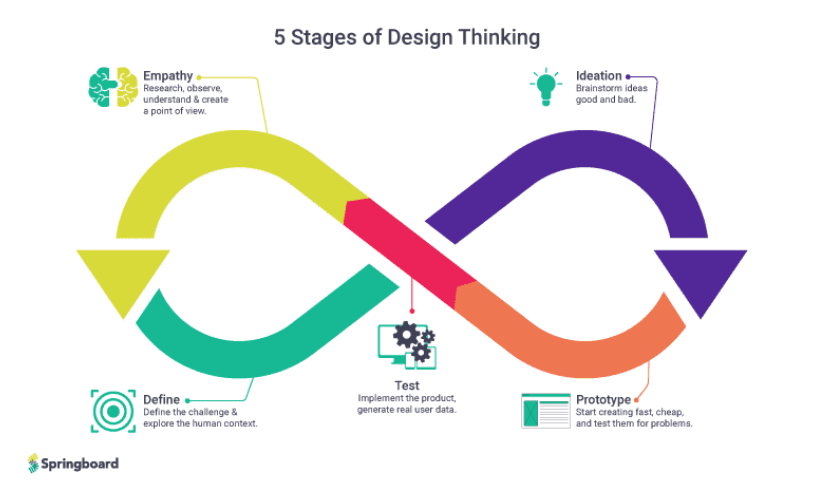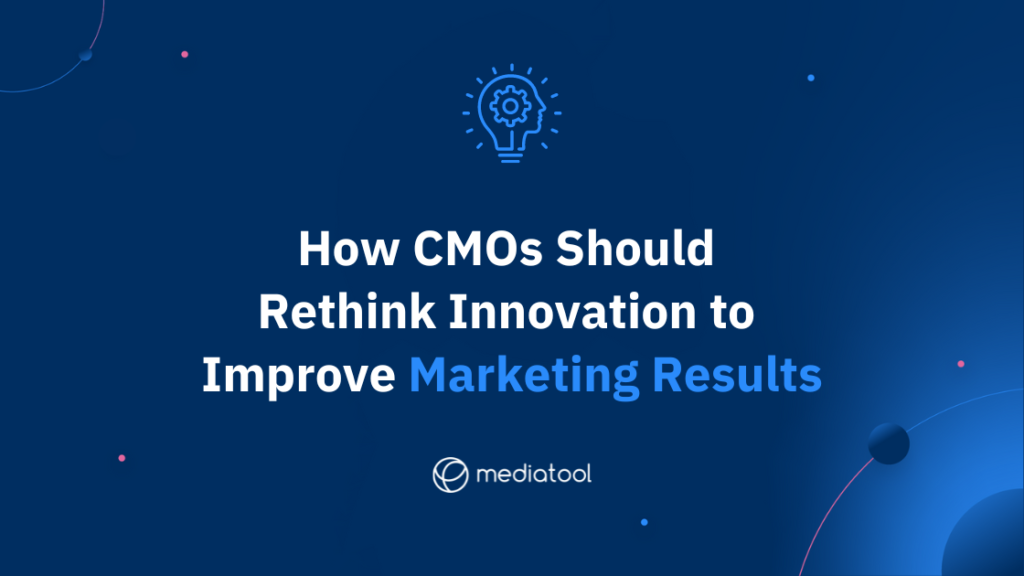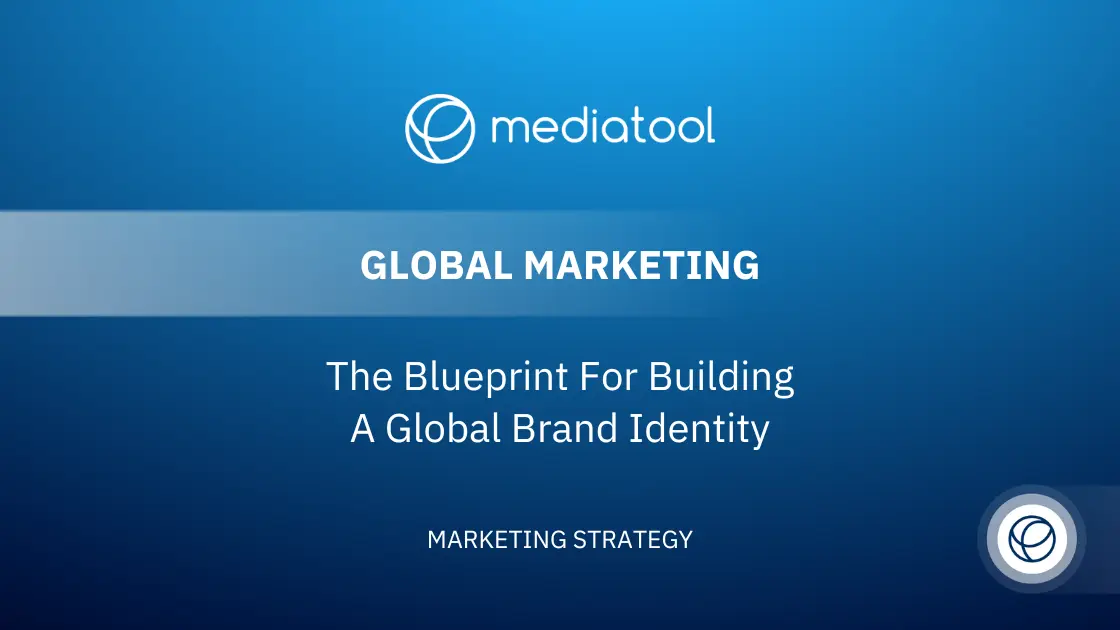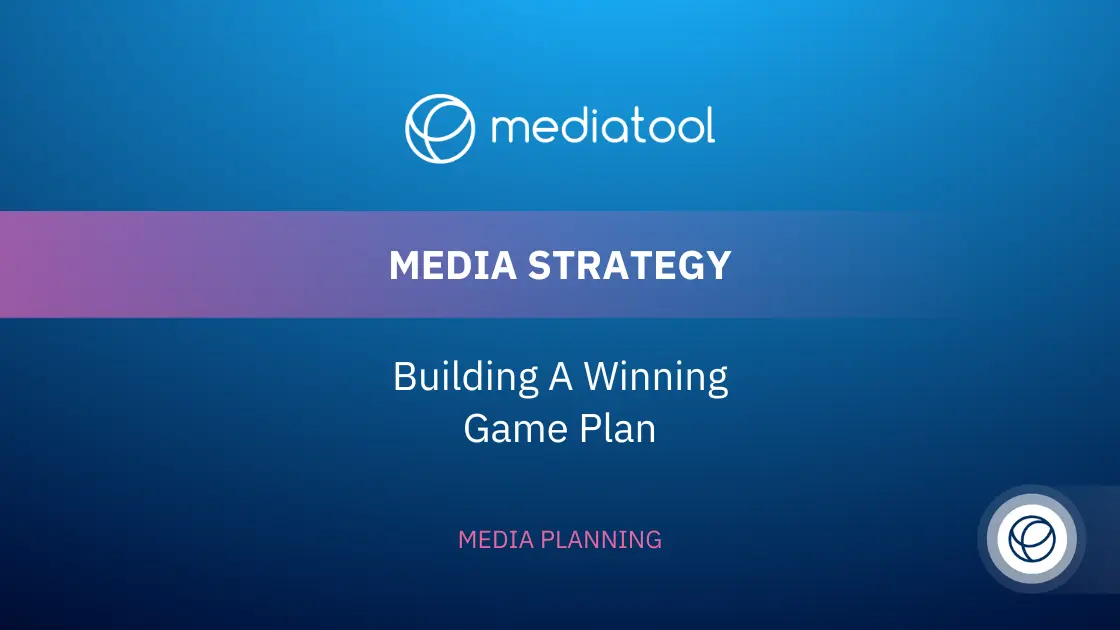Top-tier CMOs are recognized for their relentless pursuit of innovation to drive impressive marketing results. Their success hinges on their ability to constantly challenge and reassess existing marketing strategies and processes.
This includes questioning and testing approaches in digital marketing, content marketing, and email marketing to discover new ideas. Equally important is their role in inspiring their marketing team to adopt a similar mindset of continuous improvement and innovative thinking.
The Transition to C-Suite: Maintaining Creativity
Marketers who climb the ladder to become CMOs often do so due to their inquisitive and innovative nature.
This trait is crucial in formulating effective marketing strategies, increasing website traffic, and enhancing digital marketing efforts.
However, a common pitfall at the c-suite level is the abandonment of this creative zeal. Once reaching these heights, many fall into the trap of close-mindedness, sticking to the mantra “we’ve never done it that way before” or postponing new initiatives due to perceived lack of time.
Avoiding the Creativity Trap in Marketing Leadership
Does this scenario sound familiar?
Whether it’s a reflection of your approach or that of your superior, it’s a pattern worth recognizing and avoiding.
The landscape of marketing – from Google Ads to social media strategies – is ever-evolving, and remaining open to experimentation and new ideas is key.
This openness not only helps in developing innovative marketing campaigns but also in improving overall marketing efforts, customer engagement, and ultimately sales and brand recognition.
Keep reading to find out how you can reshape your thoughts on innovation to improve your team’s performance.
Identify The Innovation Blockers

Tracing the Innovation Journey
Embark on a quest to trace where in your business the innovative ideas originate and crucially, where they consistently come to a halt. Is the source of this stagnation you, a colleague, or an inherent silo within the organizational structure?
Confronting the Fear of Change
Frequently, the suppression of pioneering ideas in marketing strategies is rooted in fear. This includes the fear of deviating from established norms, the trepidation associated with risks in digital marketing efforts like Google Ads or email marketing campaigns that may not yield immediate results, and the reluctance to step outside the team’s comfort zone.
Such fears can lead to stagnant marketing results, leaving your team feeling undervalued and eventually leading them to refrain from offering new ideas after facing one too many rejections.
Diagnosing and Addressing Innovation Stiflers
Determine the specific factors or individuals curtailing the creative process. Question why this is happening. Are you overwhelmed, impeding your ability to oversee innovative marketing campaigns or content marketing strategies?
Reflect on your early days as a marketing executive, full of innovative ideas that helped you climb the ladder. Your aim should be to rekindle that enterprising spirit and motivate your team to embrace a similar approach, enhancing areas like website traffic, digital marketing, and overall marketing strategy.
By addressing these issues, you can foster an environment conducive to innovative thinking, leading to improved marketing efforts, better engagement with audience segments, and ultimately, enhanced conversion rates and sales for your business.
Take Risks to Reach Marketing Results

Innovative Steps Within Existing Frameworks
Innovation in marketing doesn’t always mean making groundbreaking changes. It could be as simple as modifying an existing practice, exploring a new bidding strategy in Google Ads, or reallocating your budget to a different aspect of your digital marketing campaign. While these changes may or may not yield significant payoffs, they are essential steps in refining your marketing strategies.
Adopting a Progressive Mindset
Seek out fresh approaches in your marketing efforts, akin to the curiosity and agility you had when you first embarked on your marketing career.
To effectively innovate, it’s crucial to adopt an open-minded perspective towards your marketing strategy. This mindset shift is key to identifying new opportunities in areas like email marketing, content marketing, or enhancing website traffic.
Strategic Experimentation and Testing
If the prospect of risk-taking is daunting, remember the mantra: test, test, test. Instead of a complete overhaul of your strategy and exhausting your budget, focus on one area of your marketing campaigns.
Implement a cycle of testing and iterating, utilizing tools like Google Analytics to gain clear insights from customer data. Through this process, ensure that you’re basing decisions on accurate and comprehensive data covering all facets of your marketing activities.
Revitalizing Your Marketing Approach
This methodical approach to risk-taking will not only infuse your business strategies with renewed vigor but also rekindle your enthusiasm for marketing.
By continuously refining your tactics, you’ll be better positioned to improve conversion rates, drive up sales, and effectively engage your target audience, ultimately leading to a more dynamic and successful marketing strategy.
Mediatool helps hundreds of CMOs turn their marketing data into actionable insights. Click here to find out how.
Empower Your Team to Innovate Too
Incorporating Design Thinking in Marketing
CMOs can take a leaf from the book of design teams by integrating Design Thinking into their approach to encourage innovation among their marketing teams. Embracing the principles of Design Thinking can transform the way your team develops marketing strategies, from digital marketing efforts to email marketing campaigns.
Interaction Design Foundation explains Design Thinking as: “a design methodology that provides a solution-based approach to solving problems. It’s extremely useful in tackling complex problems that are ill-defined or unknown, by understanding the human needs involved, by re-framing the problem in human-centric ways, by creating many ideas in brainstorming sessions, and by adopting a hands-on approach in prototyping and testing.”

Creating Collaborative Spaces for Innovation
To foster a collaborative and innovative environment, consider adopting practices like design sprints, workshops, and ideation meetings. These methods can be adapted to suit the unique needs of your marketing team. For teams pressed for time, shifting to an agile working model can be beneficial, where ideation and execution progress in tandem, enhancing everything from website traffic strategies to social media campaigns.
Inspiring and Empowering Your Team
Once you’ve rekindled your own innovative spirit, inspire your team to follow suit. Cultivate a culture where innovative thinking is valued, and where ideas are not only heard but implemented. This approach can lead to significant improvements in marketing results and overall company performance. Encourage your team to think creatively and independently, challenging them to solve problems without always seeking approval. Celebrating their ideas with the rest of the executive team and advocating for budget allocations for these initiatives can further empower them.
By creating this environment of trust and encouragement, your team will be more inclined to propose bold new ideas, from leveraging new digital marketing platforms to experimenting with different content marketing strategies. This not only enhances the brand’s marketing efforts but also contributes to a dynamic, forward-thinking company culture that drives business success.
Automate Other Areas to Prioritize Creativity
Automating Routine Tasks for Marketing Efficiency
For CMOs, daily administrative tasks can be a significant time drain. Tasks like recalculating budgets, updating and emailing marketing plans, or generating reports, while essential, can detract from the creative aspects of marketing.
By automating these processes, CMOs can save valuable time and mental energy, redirecting these resources towards creative and strategic aspects of digital marketing efforts and content marketing.
Leveraging Technology for Marketing Innovation
Investing in automation tools can significantly streamline your team’s workload. This shift allows for a greater focus on developing innovative marketing strategies, improving marketing efforts, and driving better marketing results.
For instance, using CRM software for customer data management or analytics tools for monitoring website traffic and email marketing statistics can free up time for your team to concentrate on creating more effective marketing campaigns and strategies.
The ultimate goal of automating routine tasks is to enable marketing leaders and their teams to focus on areas that require creativity and strategic thinking, such as exploring new digital marketing platforms, optimizing Google Ads, and enhancing overall marketing strategy.
This approach not only improves team productivity but also contributes to the business’s overall performance, potentially increasing sales, improving conversion rates, and enhancing customer engagement.
To find out how Mediatool streamlines marketing processes to help teams focus on making better decisions, click here.
Recruit Innovative Thinkers

Prioritizing Innovation in Talent Acquisition
In your next recruitment drive, focus not just on candidates who meet every criterion on paper but on those who bring a spark of innovation to your marketing team.
These innovators are key to driving forward-thinking marketing strategies and enhancing digital marketing efforts.
If your workload is heavy and hampers your ability to foster innovation, consider hiring someone specifically to handle tasks that cannot be automated, thus freeing you to focus on strategic initiatives.
Expanding the Search Beyond Conventional Boundaries
It’s essential to recognize that innovation in roles contributes significantly to the development and growth of the entire company.
This mindset should extend to your hiring approach, considering candidates who can work remotely.
Embracing remote work opens up a wider talent pool, allowing you to attract the best minds, irrespective of their location.
These individuals can bring fresh perspectives to various aspects of marketing, from managing Google Ads and analyzing email marketing statistics to improving website traffic and developing content marketing strategies.
By incorporating innovative thinkers into your team, you’re setting the stage for enhanced marketing results, better engagement with audience segments, and improved conversion rates.
Innovators can help identify new trends, optimize marketing campaigns, and leverage data more effectively, all of which are crucial for a successful digital marketing strategy in today’s competitive business environment.
If looking further afield sounds daunting, here are some tips for building a high-performing remote marketing team.
Harnessing Data-Driven Insights for Marketing Innovation
The Role of Analytics in Shaping Marketing Strategies
CMOs and marketing leaders must leverage analytics to craft effective strategies. An understanding of customer behavior, website traffic, and overall campaign performance enables marketing teams to tailor strategies that resonate with various audience segments, optimizing digital marketing efforts for better engagement and results.
Utilizing Google Analytics and CRM Software for Targeted Campaigns
Google Analytics and CRM software have become indispensable in understanding customer data and driving marketing innovation. These tools offer insights into global email users, mobile device usage, and customer interactions through channels like email campaigns and social media.
By analyzing this data, CMOs can segment their audience effectively, personalizing marketing efforts to meet the unique needs of different groups. This targeted approach not only enhances customer experience but also boosts conversion rates and sales.
Optimizing Marketing Efforts with Real-Time Data
Real-time data is crucial for agile marketing strategies. CMOs can use this data to make timely adjustments in their marketing campaigns, responding quickly to changes in consumer behavior or market trends.
This agility helps in maintaining relevance in a fast-paced digital world, improving organic traffic and engagement on platforms like Facebook and other social media channels. Regular reporting and analysis of this data ensure that marketing strategies remain aligned with business goals and customer expectations.
Balancing Creativity with Data-Informed Decisions
While creativity is the cornerstone of marketing, data-informed decisions can validate and enhance creative ideas.
CMOs should strive to balance innovative content strategies with insights derived from data analytics. This approach helps in creating marketing campaigns that are not only creative but also effective in reaching the intended audience and achieving desired marketing results.
By marrying creativity with data, marketing leaders can propel their brands forward, staying ahead in the competitive business landscape.
The integration of data analytics into marketing decision-making processes is indispensable for modern CMOs. It empowers marketing teams to create more effective, customer-centric strategies, ultimately leading to improved marketing performance and business growth.
Leveraging Mobile and Online Channels for Enhanced Marketing Impact
Maximizing Mobile Messaging in Marketing Strategies
In today’s mobile-first world, CMOs must recognize the potential of mobile messages as a powerful marketing tool. By integrating mobile messaging into their marketing strategies, brands can directly engage with customers on their personal devices.
This approach can significantly boost open rates, fostering more intimate and effective communication. Whether it’s promoting a new product, sharing a special offer, or driving email campaign subscriptions, mobile messaging stands as a key player in contemporary marketing tactics.
Harnessing Online Reviews and Local Searches for Organic Traffic
Online reviews have become a crucial factor in shaping customer opinions and decisions. Encouraging satisfied customers to leave positive reviews can significantly enhance a brand’s online presence and credibility.
Additionally, optimizing for local searches is vital for businesses, especially small businesses, aiming to increase their organic traffic. By focusing on local SEO strategies, companies can attract more customers in their vicinity, improving their conversion rates and overall market penetration.
CRM Software: The Backbone of Audience Segmentation
Effective audience segmentation is essential for targeted marketing, and CRM software is instrumental in achieving this. With advanced CRM systems, marketers can gain deeper insights into their customer data, enabling them to tailor content and campaigns to specific audience segments.
This personalized approach not only improves customer engagement but also enhances the efficacy of marketing efforts across various platforms, including email campaigns and mobile devices.
Content Marketing: Adapting Strategies for Diverse Platforms
Content marketers face the challenge of creating strategies that resonate across diverse platforms, from mobile devices to social media like Pinterest.
A well-crafted content strategy should consider the unique characteristics of each platform and audience segment.
This could involve leveraging augmented reality (AR) for more immersive experiences or focusing on creating content that drives organic search traffic and improves average click-through rates (CTRs).
Analyzing Performance: More Data, Better Decisions
More data often translates to better decision-making. By regularly analyzing performance metrics such as conversion rates, organic traffic, and customer engagement, marketing experts can continuously refine their strategies.
This data-driven approach helps in identifying pain points and areas of improvement, enabling brands to adapt swiftly to changing market dynamics and customer preferences.
Key Takeaway
Leading Innovation in Marketing
As a CMO, your role in championing innovation is pivotal. To truly inspire your marketing team and the broader business, it’s crucial to lead by example.
Position yourself not just as a leader but as a collaborator and co-creator, working alongside your team to develop marketing strategies that effectively meet customer needs. This approach is key to driving successful marketing campaigns and enhancing overall marketing results.
Collaboration and Customer-Centric Marketing
Treating your team as partners in creativity is essential in focusing their efforts on what lies at the heart of all marketing efforts: addressing customer needs. Whether it’s through digital marketing efforts, optimizing website traffic, leveraging Google Ads, or refining email marketing strategies, the goal remains the same – to engage effectively with your audience segments and improve conversion rates.
Overcoming Barriers with a Shift in Mindset
While fostering an innovative environment can be challenging due to various workplace barriers, adopting this mindset is vital. Embracing innovation in your marketing strategy can lead to significant benefits for the entire business. From increasing sales and enhancing brand recognition to improving digital marketing and content marketing tactics, the rewards of this approach are manifold.
Incorporating tools like CRM software and Google Analytics can aid in understanding customer data and email marketing statistics, providing insights that drive more targeted and effective marketing campaigns. By staying attuned to the latest trends and data in the industry, and regularly reassessing your strategies, you ensure that your company remains at the forefront of marketing innovation.
Mediatool is a media management platform that gives marketing leaders a full overview of all the moving cogs in campaigns–from plans and budgets, to data set up in your own customized dashboard. Our ethos is that by giving marketers the data they need, they have more time to focus on innovation and improved performance. If you’d like to hear more about it, click here.





